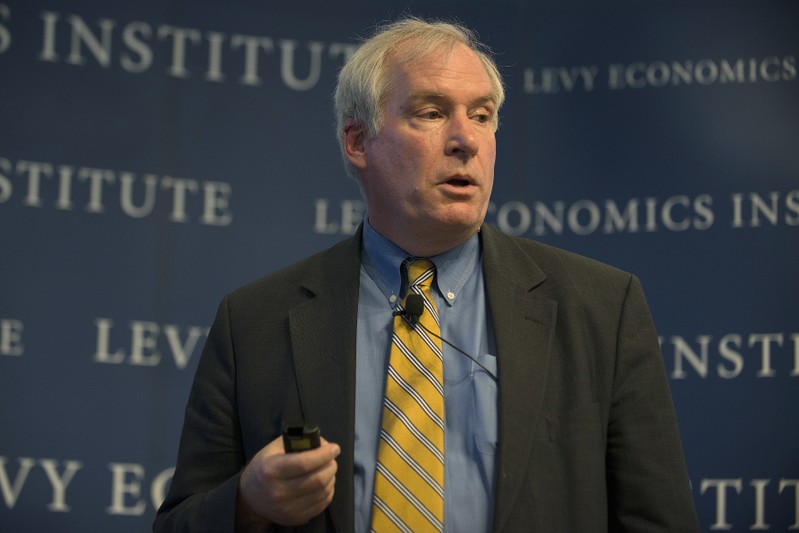
FILE PHOTO: The Federal Reserve Bank of Boston’s President and CEO Eric S. Rosengren speaks during the “Hyman P. Minsky Conference on the State of the U.S. and World Economies”, in New York, April 17, 2013. REUTERS/Keith Bedford
March 26, 2019
HONG KONG – The Federal Reserve should consider raising the proportion of short-term Treasury bonds it holds to give itself more options to respond to economic pullbacks, a top policy maker said on Tuesday.
In remarks to be delivered in Hong Kong, Eric Rosengren, president of the Federal Reserve Bank of Boston, offered a hard-line defense for one of policy makers’ most controversial responses to the 2008 global financial crisis: bond buying.
He is the third Fed policymaker in two days to weigh in on exactly what bonds the Fed should keep and why, following speeches by his counterparts in Chicago and Philadelphia. Rosengren, who is a voter this year on the Fed’s policy-setting committee, said holding shorter-term bonds could help the U.S. central bank in a future crisis by giving officials a security they could exchange for longer-term bonds to push those rates down without expanding their balance sheet.
Interest rates, he said, would likely hit their lower limits near zero percent again during a recession and bond buying would be an option. The Fed currently targets short-term rates between 2.25 and 2.5 percent.
“Some have suggested that the Fed’s balance sheet is partly responsible for financial market volatility at the end of 2018, but I disagree,” Rosengren said in remarks prepared for delivery at the Credit Suisse Asian Investment Conference in Hong Kong. “The Federal Reserve’s balance sheet decline has been quite gradual, and proceeded along roughly the same path when stock prices have been rising as when stock prices have been falling.”
The Fed bought bonds to help the economy after the financial crisis, but drew criticism for a policy seen increasing the risk of inflation or financial instability.
Last year, the Fed was criticized for letting the bonds disappear. President Donald Trump pressed the central bank to stop the balance sheet runoff on Twitter, and shares sank on Wall Street after Fed Chairman Jerome Powell said in December that plans to trim the holdings were on “automatic pilot.”
In January, the Fed said it would be willing to adjust its plans if financial conditions warranted. Last week policymakers announced the runoff would end by September.
The Fed may have to decide to buy assets again even in the absence of a recession, Rosengren said, to keep a significant amount of bank reserves. Policy makers now control rates by paying banks a percentage on the assets they keep in reserve, but those are likely to decline from current levels for reasons out of the Fed’s control.
“I dare say it is important for market observers, lawmakers and the public to become more comfortable with the benefits of central banks using their balance sheet tools to pursue the public interest,” Rosengren said.
(Reporting by Noah Sin in Hong Kong; Writing by Trevor Hunnicutt in New York; Editing by Leslie Adler)

